Healthcare professionals are the masters of healthy living mainly because they are health experts and advise others to take health precautions. However, surprisingly, the rate of substance abuse among healthcare professionals is very much comparable with the general population. A review of the evidence reveals that about 10% of healthcare professionals live with a substance use disorder. Unlike other workers who misuse substances, healthcare professionals have easier access to controlled drugs, predisposing them to substance misuse. Healthcare professionals addictions have long been an issue many shy away from.
Cedar Oaks Wellness Center is a Cincinnati drug and alcohol rehab that offers comprehensive addiction care for those in need. Contact our admissions team today to learn more.
Signs of Healthcare Professionals’ Addiction
While the signs of addiction are general, some major signs may show that a healthcare professional is struggling with addiction. This Include:
- Preference for night shifts
- Increased frequency of breaks during shifts
- Appearing unkempt
- Frequently falling asleep while on duty
- Absenteeism from work
- Sudden onset of unreliability in delivering professional duties
- Frequent episodes of mood swings
- Continuously volunteering to prescribe addictive prescription meds to patients or spending longer time with patients who use prescription drugs
Risk Factors for Healthcare Professionals’ Addiction
Health workers know the dangers of substance misuse, but this doesn’t mean they don’t get lured like everyone struggling with substance abuse. The negative conditions around most health professionals play a significant role, putting them at risk of substance abuse. Some of the factors that predispose healthcare professionals to addiction include:
Stressful Work Environment
Very few vocations are as stressful, time, and emotionally demanding as working in healthcare. Healthcare professionals work long hours seeing and administering interventions to patients and performing administrative duties. All of these make the profession’s demands comparatively harder than many professions. Also, the increasing patient-to-professional ratio that is the case in many climes has increased the demand on the professionals available, thus obliging them to spend longer hours working. Also, the emotional stress of seeing a patient die or dealing with a chronic illness can be very draining for most healthcare professionals. All of these can result in turning to substance to alleviate the pressure from a stressful work environment.
Access to Medications
Healthcare professionals, especially physicians, are saddled with prescribing addictive medications. This access may also increase their chances of misusing them. In many cases, healthcare professionals could easily self-prescribe medications for themselves for the wrong purpose without being noticed.
Profession Enabling by Colleague
Another reason why healthcare professionals addiction is on the rise may be because of the reluctance of colleagues to report malpractices observed related to substance abuse. While there is an obligation to report, many professionals, in the spirit of camaraderie, prefer to protect their colleagues and indirectly prolong their addiction.
Stigma In the Industry
The stigmatization of healthcare professionals who live with substance abuse is another reason for the high rates of healthcare professionals’ addictions. Stigma prevents professionals from coming out and seeking help in the very early stages of their addiction. Therefore, Healthcare professionals’ addiction is not usually detected until the late stages.
Feelings of Invincibility
Healthcare professionals may also feel immune to the addictive effects of prescriptive medications because they understand how they work and their side effects. The belief that they will be able to use them without becoming addicted to them may set in and thereby lead to addiction.
Poor Work-Life Balance
Due to the extreme demands of healthcare practice, many healthcare professionals may struggle to balance their relationships and other interests with their work demands. This imbalance can lead to frustration for many, leading to substance use to deal with it.
Traumatic Events
Healthcare professionals may also experience some distressing events during their careers that predispose them to substance abuse. A lot of healthcare workers feel responsible for a failed procedure resulting in the loss of a patient, especially when unexpected. Some may turn to substance use to reduce the distress they feel in cases of such events.
Getting Treatment and Support for Addiction
Like everyone, healthcare professionals need to seek expert help when struggling with addiction. At Cedar Oaks Wellness, we offer a variety of treatment programs for addiction management by a team of unparalleled professionals. These include detox, inpatient care, outpatient care, medication-assisted treatments, and aftercare support. Our therapy programs include family therapy, individual therapy, equine therapy, and relapse prevention.
Speak to our admissions team today to learn more about how our Cincinnati addiction treatment programs can help.

